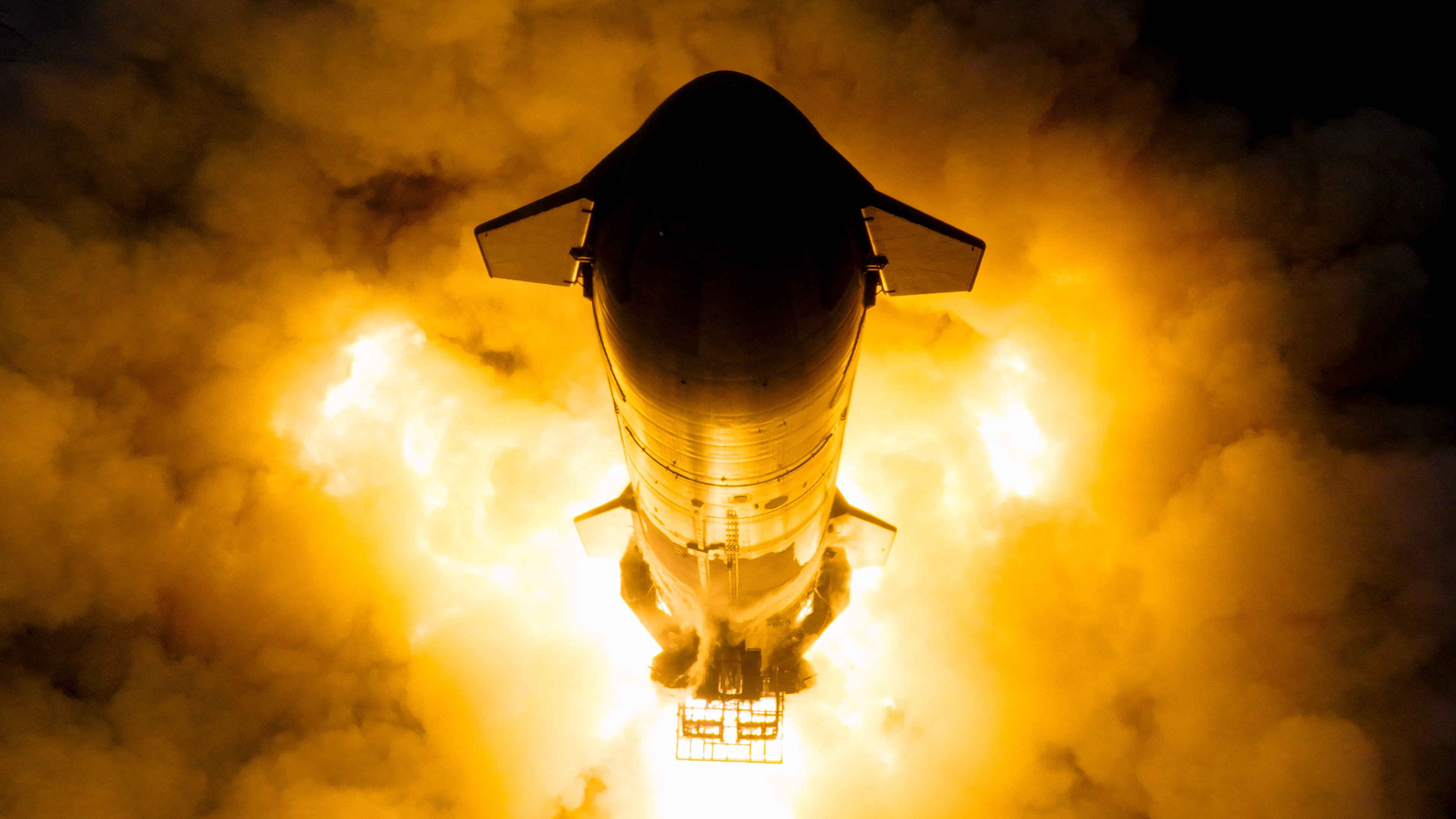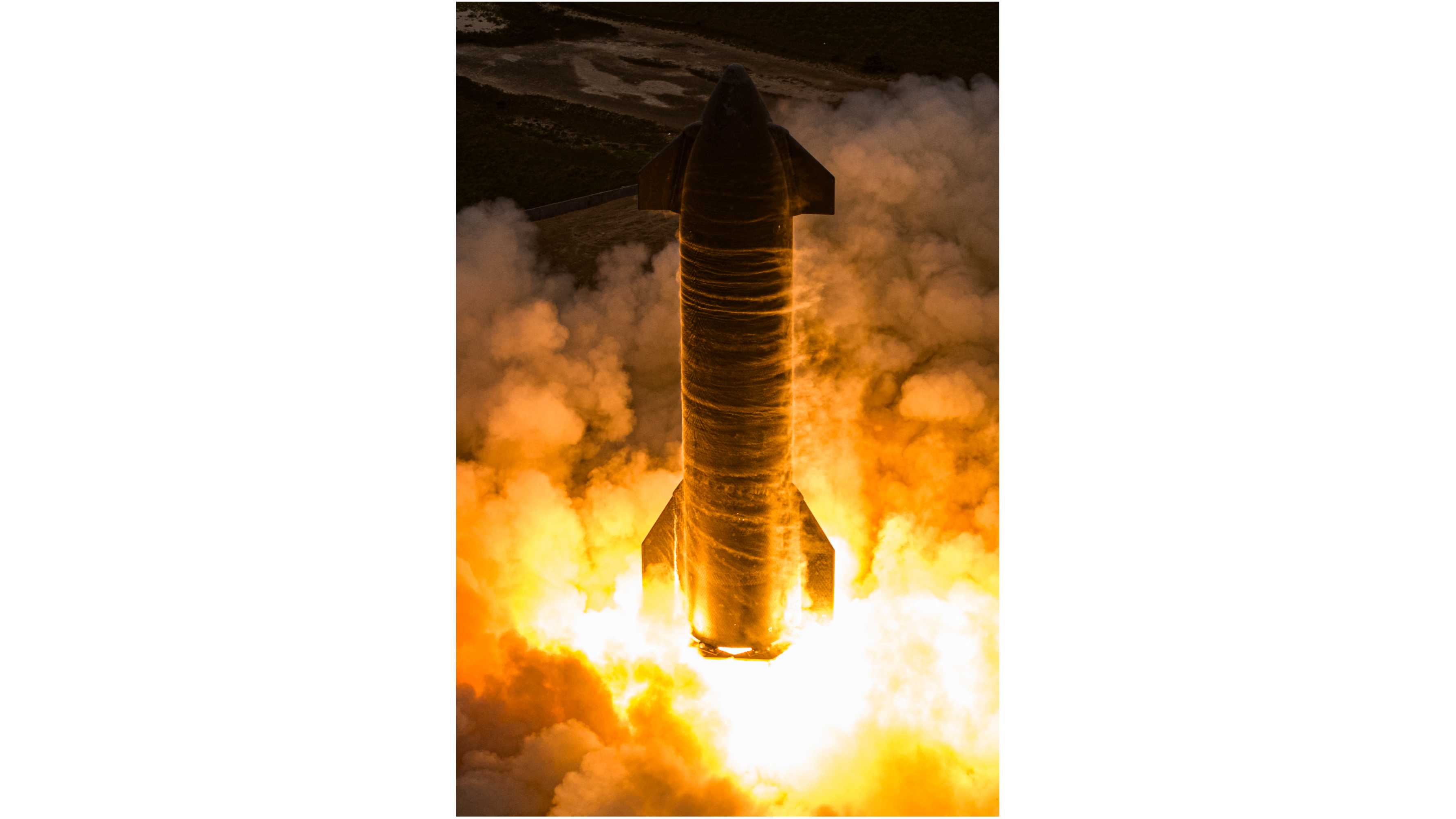
The fourth test flight of SpaceX's Starship megarocket hasn't happened yet, but the company is already gearing up for launch number five.
SpaceX conducted a "static fire" with a Starship upper stage today (May 8) at its Starbase site in South Texas, briefly igniting all six of the 165-foot-tall (50 meters) vehicle's Raptor engines while it remained anchored to the pad.
SpaceX commonly conducts static fires in the leadup to launch, but this vehicle isn't next in line to leave Earth. That would be the Flight 4 Starship, which could launch as soon as this month. SpaceX has already static-fired both of its elements — the upper stage, known as Ship, and its giant Super Heavy first-stage booster, which sports 33 Raptors.
The Flight 4 vehicle is therefore presumably ready to go. But SpaceX still needs to secure a launch license from the U.S. Federal Aviation Administration (FAA), which is apparently still looking into what happened on Starship's most recent liftoff.
Related: Relive SpaceX Starship's 3rd flight test in breathtaking photos

That flight — the third involving a full Ship-Super Heavy stack — launched from Starbase on March 14.
Starship performed quite well that day, according to SpaceX. Its two stages separated successfully, and Super Heavy aced its "boostback" burn shortly thereafter, getting into position for a planned splashdown in the Gulf of Mexico.
The upper stage, meanwhile, reached orbital velocity and flew for about 50 minutes — far longer than a Starship vehicle had managed before.

Both stages, however, ended up breaking apart — Super Heavy about 1,650 feet (500 m) above the waves and Ship during reentry to Earth's atmosphere.
SpaceX is developing Starship to get people and cargo to the moon, Mars and beyond. NASA picked the huge vehicle to be the first crewed lunar lander for its Artemis program, for example, and SpaceX founder and CEO Elon Musk has repeatedly touted Starship's potential to make Mars settlement economically feasible.
Getting Starship up and running will likely require a lot of test flights, and SpaceX is eager to fly them relatively quickly, as today's static fire shows. Indeed, Musk has said that the company plans to launch Starship at least six times this year.







